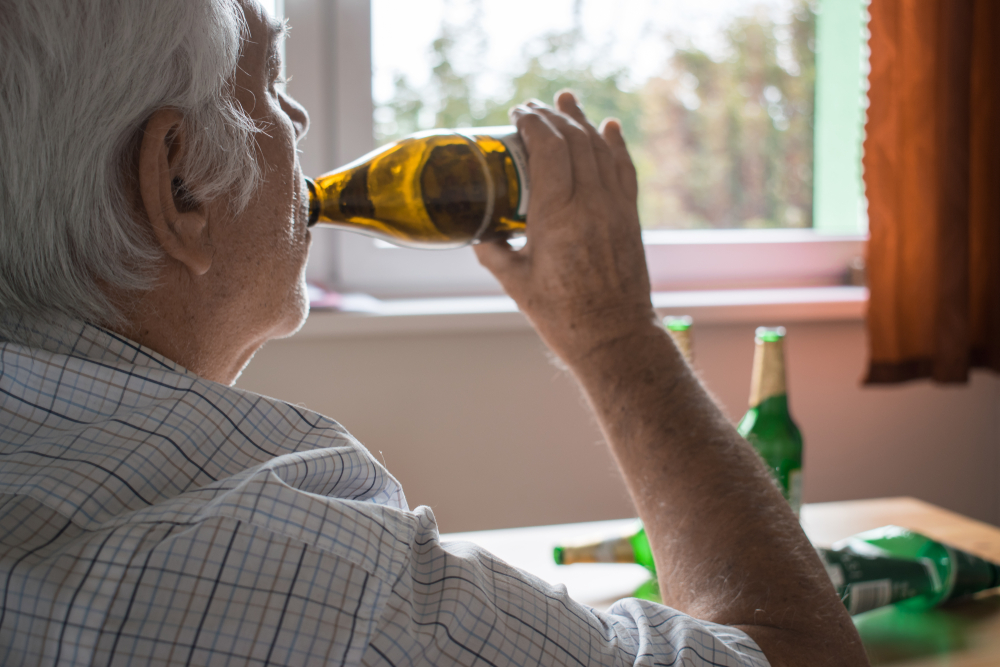Alcoholism in the Elderly
Category:

It may surprise you to learn that alcoholism in the elderly population has been increasing over the past several years, particularly during the Covid pandemic. In fact, over the last two decades, elderly alcohol abuse has increased by almost 100%. It is important to be aware of the dangers of alcoholism, especially for elderly adults.
Alcohol and the Elderly
Alcohol affects a person differently as they age. The enzyme the body uses to break down alcohol decreases with age, so alcohol stays in the bloodstream longer and has more impact on the body. Other issues that stem from alcoholism in the elderly can include:
- Dehydration. As people age, their sense of thirst diminishes. Combine this with too much alcohol in the body, and seniors who drink are at a higher risk for dehydration.
- Health Conditions. Most health conditions are negatively impacted by alcohol use. Some of the most dangerous health conditions exacerbated by alcohol include diabetes, heart failure, liver problems, high blood pressure, and cognitive problems.
- Interactions with Medications. Most medications – and even many herbal supplements – do not mix well with alcohol. Alcohol can render some medications ineffective, increase side effects, or even cause a medication to become toxic. Some of the medications that are the most dangerous to mix with alcohol include aspirin and acetaminophen (Tylenol), cold and allergy medicine, medicine for anxiety or depression, and pain medication.
Another major concern for seniors who drink is the risk of falling. Since balance problems tend to increase with age, and seniors who fall tend to get more seriously injured than their younger counterparts, the physical impairments that come with alcohol use can be particularly dangerous for the elderly.
Alcohol Withdrawal in the Elderly
Some people who realize their drinking has become a problem feel the best solution is to simply stop drinking. Unfortunately, once alcohol consumption has reached the level of an addiction, simply stopping is not quite so simple. In fact, many alcoholics who try to stop drinking give up due to alcohol withdrawal symptoms. Alcohol withdrawal in the elderly is no different.
Some of the symptoms of elderly alcohol withdrawal include:
- High blood pressure
- Sweating
- Difficulty sleeping
- Stomach issues
- Shaking, trembling, or twitching
- Anxiety and confusion
The fear of alcohol withdrawal symptoms can prevent many seniors from even attempting to stop drinking. In order to lessen the effects of alcohol withdrawal, slowly decrease the amount of alcohol consumed over time. Consider writing out a schedule to help everyone stay on track. Remember breaking any addiction is a very slow, difficult process that will take a considerable amount of time and there may be setbacks along the way.
Download Our FREE Caregiver Stress Guide
How to Help an Elderly Alcoholic
As you begin to help the elderly alcoholic in your life, keep in mind that alcoholism is an addiction – a serious condition that cannot simply be given up. Professional help is needed in 90% of cases. In addition to programs like Alcoholics Anonymous, there are hundreds of other options for treatment and assistance, including options like online therapy. You can always begin by calling the SAMHSA hotline, which can direct you to help in your area: 1-800-662-4375
Subscribe
Date: 2023-12-12
Category:


